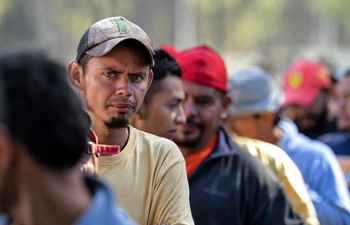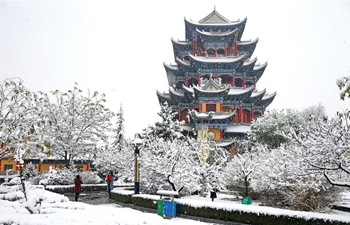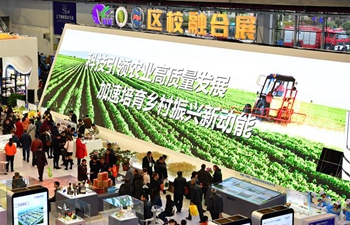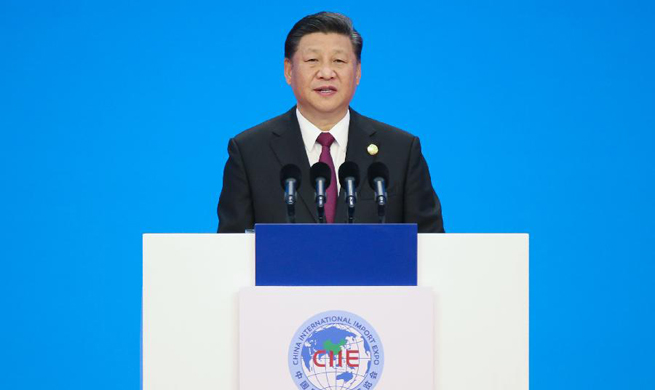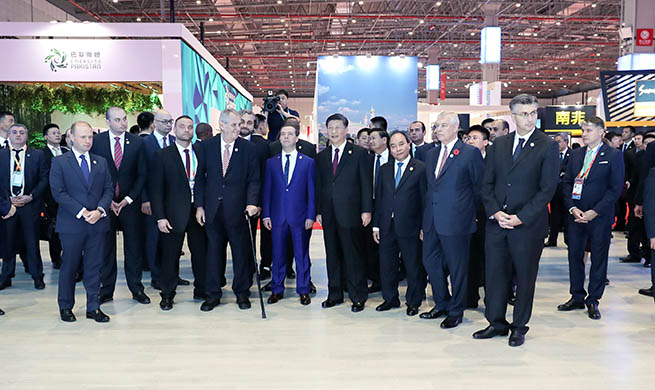GENEVA, Nov. 6 (Xinhua) -- Trade facilitation is a powerful example of the importance of a multilateral approach to removing obstacles for the movement of goods across borders, a World Trade Organization (WTO) official said Tuesday.
Suja Rishikesh, director of WTO's market access division, made the remarks while delivering a speech at the First Air Cargo Trade and Trade Development Day, hosted by the International Air Transport Association (IATA) here.
"The WTO has a special role to play in removing obstacles at a multilateral level. And it has proven that it can deliver results," said Rishikesh.
The Trade Facilitation Agreement (TFA) was signed in 2013 and has been in force since February of last year. A total of 139 countries have so far accepted the agreement.
As a WTO treaty, Rishikesh said it has a "quasi-universal application" since WTO membership now extends to virtually every corner of the world.
The official said new measures will enable countries to provide a more transparent and predictable trading environment -- a key ingredient for attracting foreign investment and for increasing trade.
"Economists estimate that implementing the TFA could lead to an expansion in developing country exports of up to 10 percent," she said.
Average trade costs are predicted to go down by almost 15 percent and Rishikesh said that some two-thirds of the benefits are expected to go to the developing and least-developed world.
She warned, however, of challenging times.
"Trade tensions, economic nationalism and the rise in protectionism are putting the WTO under what I call a 'stress test'," said Rishikesh.
Discussions have started among some WTO members on finding "the best route to navigate the upcoming turbulence in order to reach the common landing zone of inclusive economic growth and sustainable development for everyone," she said.




